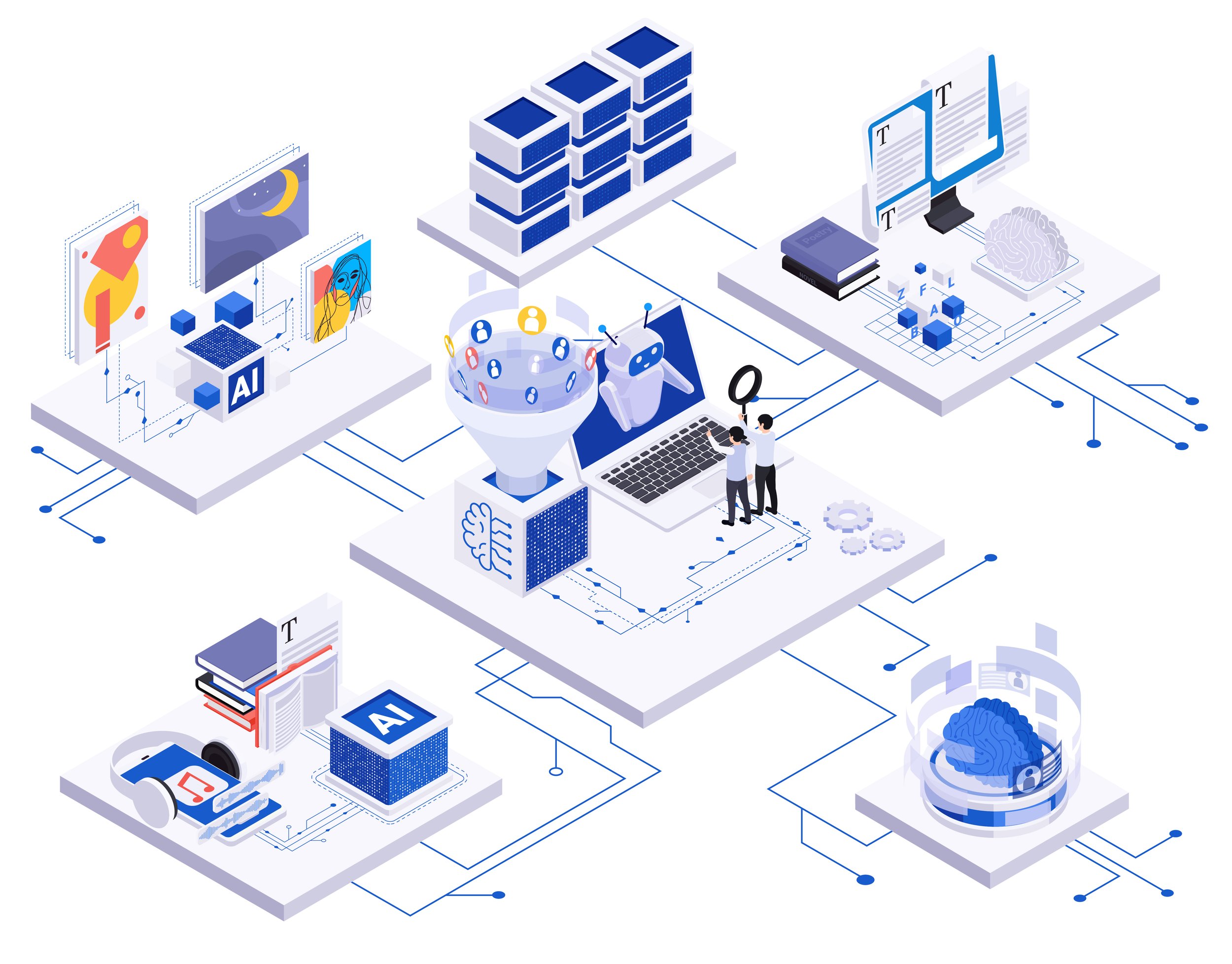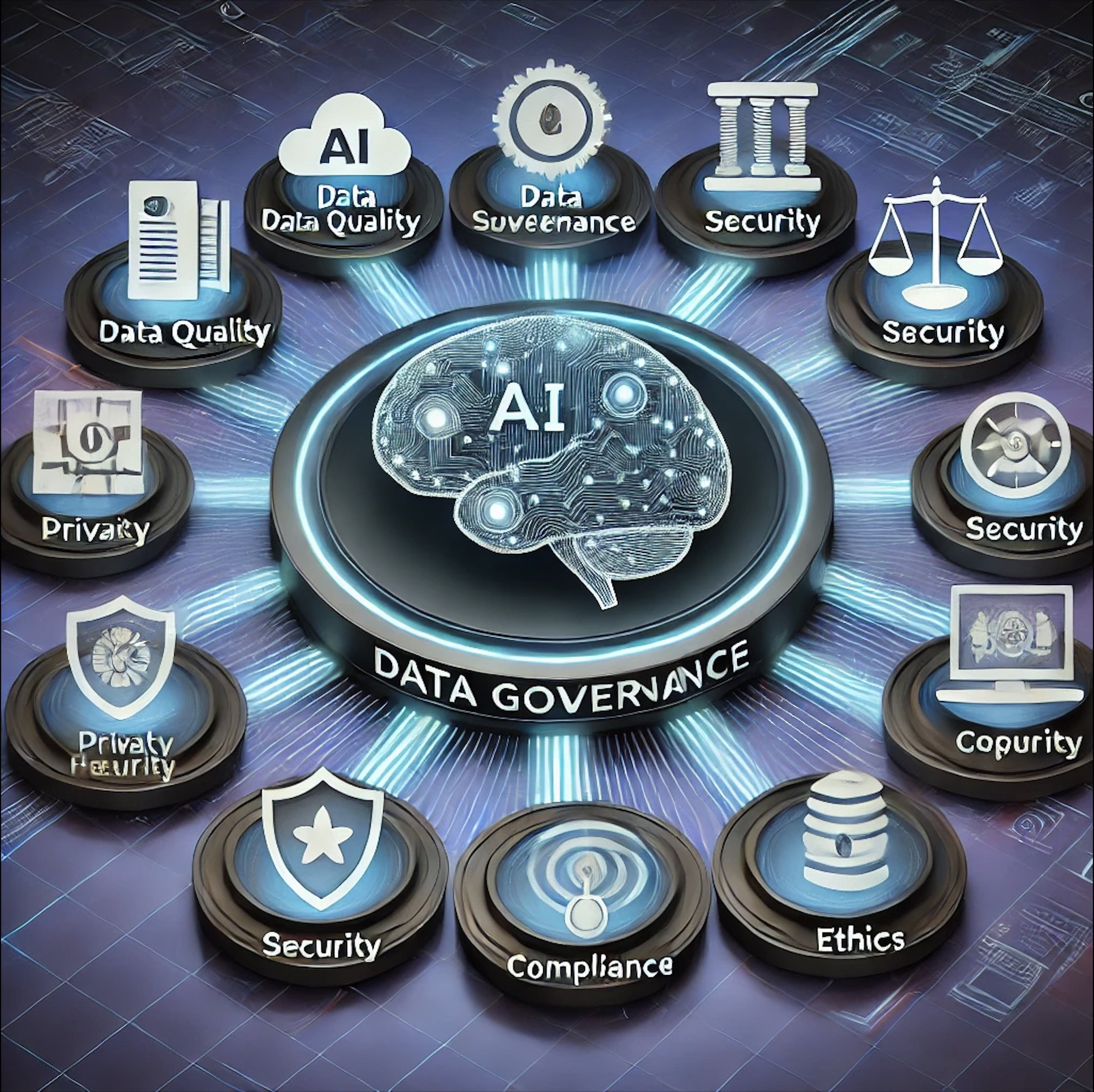
Federated AI: A Privacy-Preserving Approach to Machine Learning
Artificial Intelligence (AI) thrives on data - but in today’s privacy-conscious world, access to large centralized datasets is increasingly constrained by regulation, user expectations, and ethical considerations. Enter Federated AI, an emerging technique that enables organizations to collaborate on AI model development without sharing raw data.
This approach offers a powerful way forward for industries handling sensitive data, such as healthcare, finance, and government. By keeping data decentralized and focusing on collaborative learning, federated AI preserves privacy while unlocking the full value of distributed datasets.

Navigating Global Data Protection Laws: A Regional Perspective
In the age of globalization, data doesn’t just cross city or state lines—it flows across continents in milliseconds. While this frictionless movement fuels innovation and commerce, it also introduces complex compliance challenges. Organizations must navigate a patchwork of data protection laws that vary widely by region, with significant consequences for getting it wrong.
This article provides a snapshot of key data protection laws across major regions, highlighting both common themes and critical differences, and explores how organizations can align with these standards to operate securely and ethically on a global scale.

The Hidden Risks: Privacy and Security Vulnerabilities in Data Collection
In the age of digital transformation, data collection is an indispensable practice for businesses, governments, and service providers. From personalized marketing to predictive maintenance and public health surveillance, data drives innovation. However, the more data we collect, the more we expose ourselves, and others, to privacy and security risks. Understanding these vulnerabilities is critical for any organization building or relying on data-driven systems.

The Importance of Diversity and Bias Mitigation in AI: Best Practices for Responsible AI Development
Artificial intelligence (AI) is transforming industries, driving innovation, and shaping the future of work and society. However, the immense potential of AI also comes with significant risks—most notably, the danger of bias in AI systems. Biased AI can lead to inequitable outcomes, reinforce harmful stereotypes, and erode trust in technology. To address these challenges, organizations must prioritize diversity and bias mitigation as essential pillars of responsible AI development.

Understanding and Mitigating Data Risk: Best Practices for Responsible Data Governance
In the digital age, data has become one of the most valuable assets for organizations, but it also presents significant risks. Data breaches, misuse, and unintended consequences can lead to financial, legal, and reputational damage. Effective data governance—policies and practices for managing data securely and responsibly—is essential to mitigate these risks. Below, we explore the key components of data risk and provide actionable best practices for responsible data governance.

The Importance of Responsible AI
AI is transforming decision-making processes, from automating customer interactions to predicting future trends. But the widespread deployment of AI systems also raises ethical concerns about fairness, transparency, accountability, and privacy. Organizations that fail to address these concerns risk reputational damage, regulatory penalties, and loss of trust among stakeholders.
At its core, responsible AI is built on three foundational principles:
Accountability: Organizations must take responsibility for the decisions and outcomes produced by their AI systems.
Transparency: Clear documentation and openness about how AI systems work and make decisions are essential for building trust.
Defensibility: AI systems must be demonstrably fair, unbiased, and compliant with ethical standards to withstand scrutiny from regulators, the public, and the media.
By embedding these principles into their AI strategy, businesses can not only mitigate risks but also create a competitive advantage by establishing themselves as leaders in ethical innovation.

The Ethics of AI: Navigating the Risks and Opportunities for Organizations
In the rapidly evolving landscape of artificial intelligence (AI) and data systems, organizations face increasing pressure to adopt these technologies to enhance performance and gain a competitive edge. However, as AI transforms industries, it brings ethical challenges that demand careful consideration. Issues such as fairness, bias, and the potential for public backlash can deter organizations from fully embracing AI, with decision-makers fearing reputational damage, legal consequences, or public criticism. To move forward responsibly, businesses must address these risks while reaping the benefits of AI innovation.

Identifying Outdated Data Practices and Gaining Insights into New Data Practices
In today’s data-driven world, staying competitive means evolving with the times. Businesses that rely on outdated data practices risk falling behind as competitors adopt more efficient, insightful, and scalable solutions. From fragmented spreadsheets to manual processes, antiquated methods limit a company’s ability to harness the full power of its data. Transitioning to modern practices is no longer optional—it’s essential.

Developing a Framework to Deploy and Adopt an AI and Data Strategy
In an era where data is the lifeblood of innovation, organizations across industries are prioritizing the development and deployment of AI and data strategies. While the potential benefits—ranging from cost savings to revenue growth and improved customer experiences—are clear, many businesses struggle with the practicalities of creating a robust framework to guide AI adoption. Without a well-defined strategy, companies risk wasted investments, poor adoption rates, and missed opportunities.
This article outlines a practical, business-oriented framework for deploying and adopting an AI and data strategy, bolstered by real-world examples and concluding with how Zeed can assist in this transformative journey.

Identifying Cost Implications Related to Developing an AI and Data Strategy
In today’s data-driven world, businesses are increasingly turning to artificial intelligence (AI) and advanced data analytics to gain a competitive edge. However, developing an AI and data strategy is not just about the technology itself; it’s also about identifying, understanding, and managing the associated costs. For many organizations, a lack of clear visibility into these costs can hinder the success of their AI initiatives or, worse, lead to underwhelming returns on investment. Let’s explore the key cost factors, real-world examples, and actionable solutions to ensure that businesses can harness the power of AI and data without financial missteps.

Applying Prediction Data to Make Better Decisions
In today’s business landscape, the ability to anticipate future trends, customer behavior, and operational challenges is a game-changer. Predictive analytics—powered by data, statistical algorithms, and machine learning—gives businesses the tools to make proactive, informed decisions. Applying predictive data effectively can mean the difference between staying ahead of competitors or falling behind.
This article explores how businesses can harness predictive data to improve decision-making across operations, strategy, and customer engagement.

How Data Analytics Supports Decision-Making: A Guide for Business Leaders
In an increasingly data-driven world, organizations recognize that data analytics is not merely about collecting vast amounts of information but about leveraging that data to make informed, impactful decisions. When integrated strategically, data analytics empowers businesses to achieve their objectives, optimize resources, and build a competitive edge. This article explores how organizations can use data analytics to support decision-making, focusing on objective-driven data utilization, program-specific integration, transparency, reassessing strategies, overcoming digital transformation challenges, managing resources, and fostering a data-driven culture.

Identifying Core Components Needed for a Data Strategy
In today’s business landscape, data is the backbone of decision-making, innovation, and growth. However, the ability to leverage data effectively requires more than just collection—it demands a well-crafted data strategy. A successful data strategy enables organizations to harness data to drive actionable insights, improve operations, and uncover new opportunities. This article explores the foundational components needed for a robust data strategy, emphasizing data quality, continuous data collection, managing variability, addressing missing data, building robust infrastructure, and leveraging hidden data.

Successfully Implementing an AI Strategy
Implementing a successful AI strategy requires careful planning, collaboration, and continuous adaptation. As AI technologies continue to evolve and businesses face increasing pressure to innovate, organizations must ensure they are building AI systems that are not only effective but also scalable, ethical, and secure. Here are the key steps that business leaders must take to implement a successful AI strategy.

Evaluating and Assessing an Organization’s Data and AI Strategy: A Business Leader’s Guide
In today’s data-driven world, organizations are increasingly turning to artificial intelligence (AI) to drive business innovation, improve operational efficiency, and create new revenue streams. However, AI and data strategies must be carefully crafted and continually assessed to ensure they deliver real value. For business leaders, evaluating and assessing the effectiveness of these strategies requires a structured approach that considers several key components. This article explores the critical areas you should focus on when evaluating and assessing your organization’s data and AI strategy.

Identifying Foundational Components for an AI Strategy: A Guide for Business Leaders
To create a sustainable and effective AI strategy, organizations must lay down a solid foundation. This involves a combination of initial small-scale projects, fostering a supportive culture, emphasizing human oversight, managing data access and ownership, and gradually scaling efforts. In this article, we’ll explore these key components and how they can guide your AI strategy for long-term success.

Common Misconceptions About AI: What Businesses Need to Know
Artificial Intelligence (AI) is a powerful tool that is transforming industries across the globe. It promises to revolutionize how businesses operate, analyze data, and make decisions. However, despite its rapid growth and potential, there are still many misconceptions about AI that could hinder its effective application in business. Understanding these misconceptions is essential for organizations that want to harness the full potential of AI while avoiding common pitfalls. This article explores some of the most widespread misunderstandings about AI and provides the facts that every business leader should know.

Differentiating Between Key Data Ownership Frameworks
In today’s data-driven world, organizations are continuously collecting, managing, and analyzing vast amounts of data. The frameworks for owning and utilizing this data vary, influenced by various factors such as privacy concerns, data security, legal regulations, and technological advancements. As data ownership becomes increasingly complex, it’s important for businesses to understand the different data ownership categories and frameworks that influence how they can leverage data. This article will explore key data ownership frameworks: Raw Data Ownership, Anonymized Data Ownership, Aggregated Data Ownership, Shared Ownership and Consumer Rights, and Federated Data Ownership, providing insights into their implications for businesses.

Understanding Data and Metadata in the Context of AI and Machine Learning
In today’s increasingly digital world, data has become the backbone of innovation and decision-making. For businesses leveraging artificial intelligence (AI) and machine learning (ML), the importance of data is well understood. However, while much of the focus is placed on data itself, metadata—the data about data—is equally crucial. Understanding the interplay between data and metadata can unlock the full potential of AI and ML applications, driving better outcomes and delivering sustained value.

